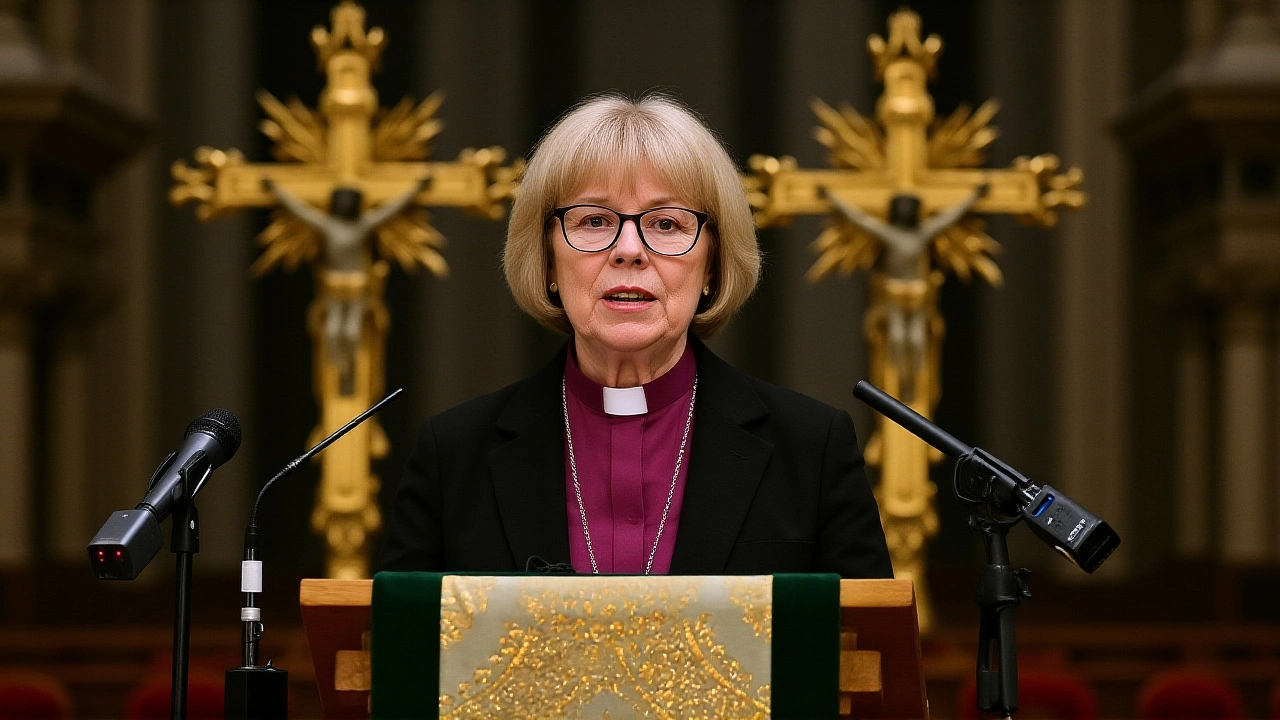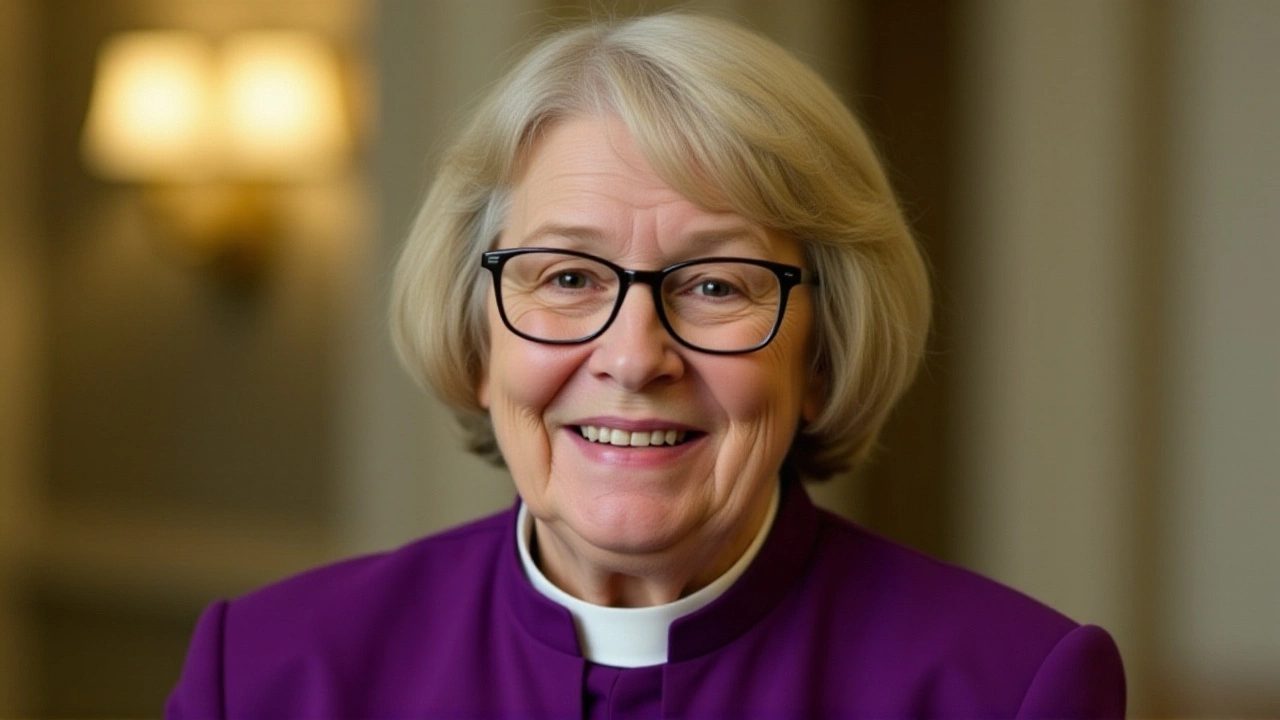When Sarah Mullally, the Bishop of London was announced as the 106th Archbishop of Canterbury on , the Anglican world felt the tremor of a centuries‑old glass ceiling finally cracking.
The nomination, revealed at a solemn gathering in London, means the 63‑year‑old will leave her current see and become the first woman to lead the Church of England. The move, sanctioned by the Crown Nominations Commission, is poised to reshape not just ecclesiastical hierarchy but also the public’s perception of a church struggling with relevance in the 21st century.
Why This Appointment Matters
Here’s the thing: the Anglican Communion has never had a female Archbishop of Canterbury. The role, dating back to 597 AD, has traditionally been the spiritual head of over 85 million Anglicans worldwide. By installing Mullally at its helm, the Church signals a willingness to modernise its leadership while still wrestling with deep‑seated issues of governance and safeguarding.
Turns out her background is as eclectic as it is impressive. Before her ordination, she served as the Chief Nursing Officer for England from 1999 to 2004 and later directed patient experience for the NHS. That blend of health‑care administration and pastoral care gives her a unique lens on the church’s ongoing safeguarding scandals.
From Nursing Floors to the House of Lords
Born Sarah Elisabeth Bowser in Woking, Surrey, on March 26, 1962, she entered nursing at South Bank Polytechnic in 1980, earning a BSc while training at St Thomas’ Hospital. A later MSc in inter‑professional health and welfare studies (London South Bank University, 1992) cemented her reputation as a reform‑oriented administrator.
Her ecclesiastical climb began in earnest when she was appointed Bishop of Crediton in 2015, a suffragan role in the Diocese of Exeter. Four years later, the Crown tapped her for the Bishopric of London, a post she has held since 2018 and from which she also sits on the Lords Spiritual benches in the House of Lords. The juxtaposition of parliamentary influence and pastoral duty makes her a rare bridge between state and church.
Reactions Across the Anglican Spectrum
Anglican Watch, an advocacy group that has long pressured the church for safeguarding reform, welcomed the nomination. "Sarah has consistently called for a revolution in safeguarding practices, and her elevation offers a real chance to address the defective, unsafe culture that has plagued the Church," said spokesperson James Hargreaves. The group added that while hope is renewed, skepticism remains: "Even with this historic shift, the institution is still tradition‑bound and struggling to enforce accountability."
Conversely, the Global Anglican Future Conference (GAFCON) expressed sorrow. "It is with deep disappointment that GAFCON receives the news of Mullally's appointment," read a statement dated the same day. Critics worry that a liberal‑leaning appointment could widen theological rifts, especially in provinces where conservative doctrine dominates.
Meanwhile, ordinary parishioners in Canterbury are already planning vigils and celebrations. One local choir director, Emily Clarke, told reporters, "Seeing a woman take the throne feels like the church finally listening to half its members who have felt invisible for too long."
Implications for Church Governance
What does this mean for the day‑to‑day running of the Church? First, Mullally inherits the delicate task of shepherding the Crown Nominations Commission, which selects future bishops. Her health‑care experience suggests she may push for tighter safeguarding protocols, possibly introducing independent oversight bodies akin to NHS England’s patient safety commissions.
Second, as a Lord Spiritual, she will likely champion legislation affecting religious education and charitable status. Analysts from The Centre for Religion & Society predict her presence in the Lords could accelerate reforms on clergy misconduct reporting within a year of her installation.
Looking Ahead: The Road to Translation
The formal translation ceremony, traditionally held at Canterbury Cathedral, is slated for early 2026. Until then, Mullally will continue her duties in London, overseeing the Diocese’s budget of £110 million and its myriad social programmes. The transition period also gives the Crown Nominations Commission time to address lingering concerns about the process’s transparency.
One thing is clear: the ripples from this appointment will be felt far beyond the English Channel. As the Anglican Communion grapples with declining attendance—down 3 % in the UK alone over the past five years—the symbolic power of a female archbishop could become a catalyst for renewal or, if mishandled, deepen existing fractures.
Key Facts
- Nomination announced:
- First woman to serve as Archbishop of Canterbury
- Current role: Bishop of London since 2018
- Previous secular role: Chief Nursing Officer for England (1999‑2004)
- Age at appointment: 63

Frequently Asked Questions
How will Sarah Mullally’s health‑care background influence her role as Archbishop?
Her experience managing large‑scale NHS reforms is expected to inform a more rigorous approach to safeguarding. She may champion independent auditing of clergy misconduct cases, mirroring patient safety reviews, and push for clearer reporting pathways within the Church.
What is the reaction among conservative Anglican provinces?
Groups like GAFCON have voiced disappointment, fearing the appointment signals a liberal shift that could strain relationships with provinces in Africa and Asia that hold more traditional views on doctrine and gender roles.
When will the formal translation to Canterbury take place?
The ceremony is expected in early 2026, likely in February, after the Crown Nominations Commission finalises any remaining procedural steps.
What impact could this appointment have on church attendance?
While it’s too early to predict exact numbers, analysts suggest the novelty of a female archbishop could attract younger demographics and signal a more inclusive institution, potentially slowing the current 3 % decline in UK attendance.
Will Mullally retain her seat in the House of Lords?
Yes. As Archbishop of Canterbury, she will continue to sit as a Lord Spiritual, giving her a platform to influence legislation on religious matters and charitable governance.

